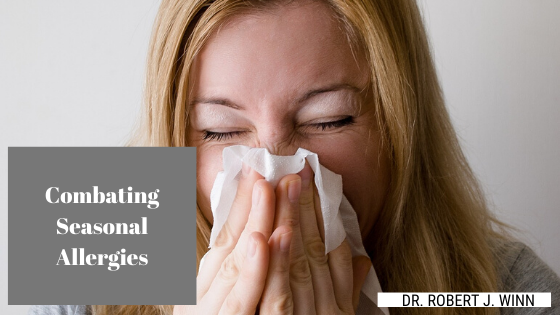For millions of people, springtime means fresh air, sunshine, and blooming trees and flowers. For other millions, it means fighting seasonal allergies, also known as hay fever, that make them feel miserable and keep them from going outside to do the things they love. Symptoms of seasonal allergies include sneezing, runny nose, and congestion. If you are prone to seasonal allergies, keep these symptoms from manifesting by following these simple strategies.
Keep Pollen Out of Your Home
Allergies are at their worst during days when the pollen count is high, so you might need to take acute measures to make sure it doesn’t affect you too severely. If your allergy symptoms tend to be severe, consider staying inside and closing all the doors and windows. If you can afford it, have a high-efficiency particulate (HEPA) air filter installed in your air conditioning system. Individual pollen grains are so small that they can’t be seen with the naked eye, but they are no match for HEPA filters. You could also have a flat panel filter installed on your furnace.
Cover Up and Wash Up
Every time you step outside, you stand the chance of bringing back millions of grains of pollen with you. Keep this to a minimum by covering your hair and exposed skin. You can wear a hat, a headscarf, or a bonnet to cover your hair. Wearing long-sleeved t-shirts can help keep pollen off of your arms. As soon as you return home from the outdoors, you should jump in the shower or bath to wash up. Don’t risk getting all of that pollen on your furniture. Your home is your castle, and you should be safe from pollen in it.
Switch to a Different OTC Remedy
If your regular over-the-counter (OTC) antihistamine is no longer as effective as it once was, there are plenty of other ones to choose from. Sometimes our bodies become highly tolerant to medications we regularly take, which makes them less effective. Try switching to a different brand with a slightly different formula. For example, try taking an antihistamine if you have typically been taking decongestants. Nasal sprays and combination medications that are both antihistamines and decongestants might do the trick. Examples of these include Allegra-D and Claritin-D.


